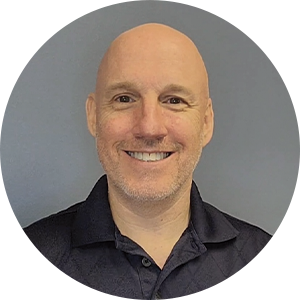It should come as no surprise that the spaces we occupy every day have a huge impact on our overall wellness. The Environmental Protection Agency and Vancouver Coastal Health report that Americans and Canadians spend about 90% of their time indoors. But what about the time we spend outdoors?
Your Welcoa membership has expired.
Breaking the Silence: The Butterfly Effect of Opening Up About Mental Health
When I was five years old, my grandmother, a great philanthropist with her time, took my brother and me to a nursing home to visit no one in particular. This was back in the day when you could just walk into a place such as a nursing home and enter whatever room you felt compelled to. She loaded us up with candy and other treats and walked with us from room to room, giving these random strangers a treat and a smile. These recipients of our gifts were all completely unknown to the three of us, but I can still remember the smiles and sentiments of gratitude from these strangers, even the ones who could not speak or express it.
On our way home, my grandmother told us about the importance of the Butterfly Effect, which by its simplest definition, says that a small action in one place can have a rippling effect in many other places. She would go on to explain that our actions towards these nursing home residents would most likely ripple on to impact other people, and we would never know about it. My grandmother was the most giving and generous of butterflies and upon her death, we heard from many people who were affected by her kind deeds, and she didn’t even know it.
I am a firm believer in the Butterfly Effect, and since it is Mental Health Awareness Month, I want to share with you my own experience with it and how by attending a WELCOA Summit over five years ago and listening to a very powerful speaker, many lives have been improved as a result.
The speaker, Mettie Spiess, shared her own personal story of loss and grief from suicide with a crowd of complete strangers. Her story was so deeply personal and powerful, and I remember her concluding by telling us that if we don’t have mental health as part of our wellness programs today, then start tomorrow. There was a lot of storytelling at that specific WELCOA Summit, and on my flight home, I knew it was time to tell my own to the people that I have been supporting over the past seven years.
Below is an excerpt of my story that I shared with over 2,000 people. 2,000 people that I had been ashamed to let know about my own mental illness. These were the people that I had been trying to motivate in their own well-being, and I was about to do my own storytelling and end up breaking wide open the discussion on mental health in the workplace. Mettie Spiess had flapped her wings in Omaha, Nebraska, and I was about to flap mine in Rochester, New York, about 1000 miles away:
After about a year and a half of trying to feel like my old self again and failing at it, a colleague came up to me asking if everything was ok. I didn’t know this person tremendously well, but she sensed that something was wrong and when she asked me that simple question, I allowed myself to open up a little and finally let someone in on what was going on in my life. I hated to look weak, but also was desperate to feel good again, so I decided to talk to her. She recommended me to a therapist that she had used previously as part of our EAP program. I remembered hearing about the EAP program but didn’t know how to get started in the process of using it, so she helped me through the process and I eventually ended up in a therapists office for 5 free visits. Looking back, these sessions seem a little hazy to me, but they are what saved me from myself and the depression I was in for over a year and a half. While my depression was situational, it still brought me to my knees and left me feeling helpless and paralyzed for a period of time. I was trying so hard to get my old life back, that I was unable to move forward in growing stronger into my new life and what my new reality was. Happiness didn’t happen overnight, but over time, I found myself back on track and living an even better and stronger life than before.
Here is what I learned from my own personal depression/mental illness:
- Preparedness is key to almost everything in life. I learned that when we are in crisis, it is not the ideal time to find out what help is available. When I was in the midst of my struggle, I didn’t have the ability to rationally look for the help that was there for me. Having the EAP information somewhere that I can easily access it and understand it while I am in a better state of mind will help if crisis comes to my door again.
- The person who reached out to me was a life saver. I learned to ask others if they are ok if I sense that something might be wrong. You may not always feel comfortable doing so, but if you do, it might mean the world to someone.
- You are NOT alone in whatever you are going through or feeling. I’m sharing my story to show you that it can happen to anyone, and it really is ok!
- The support that I received and the tools that I learned about through this journey were key in me working through my depression and managing it as well to this day. I have also learned that I need to keep doing these little self-care techniques every day for my own mental health. My own health is related to the daily things I do.
Mettie, that speaker I heard just one time, at one event, flapped her wings, and then I flapped mine. I sent this email to 2,000 people. Typically, when I send a wellness-related email to this number of people, I usually hear back from 15-20 with comments and feedback. This time, I hit the send button, felt a little sick to my stomach, and walked around the building a few times to help calm my nerves. I didn’t check my email for a couple of hours, and when I did, there were over 500 responses, and I would receive over 300 more over the next few days. The discussion had begun, and the response was clear. We needed to continue the discussion now! All of a sudden, hundreds of wings were flapping, and people began to talk and to share. Many employees continue to reach out, sharing their own personal struggles, and together we find the help that is right for them. The wings have been flapping since, and there are many people that I am sure I am unaware of that have benefited from us talking about mental health at work. The people whose lives are changed are people that Mettie will never meet or know. But her wings have helped to give their’s movement!
Looking for a proven method and pathway to create your own Butterfly Effect on employee mental health? Discover hundreds of resources on the WELCOA platform to help you at any stage of the journey.





